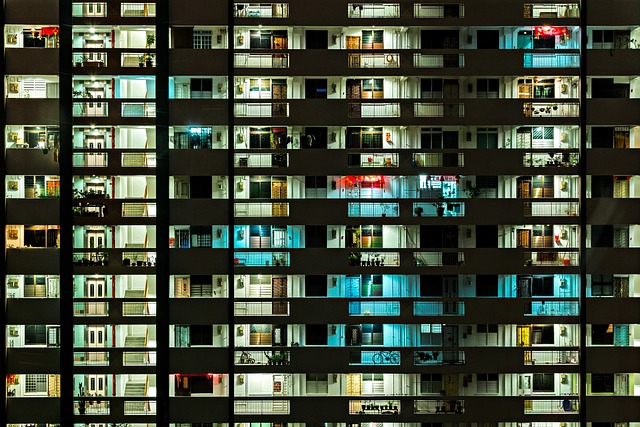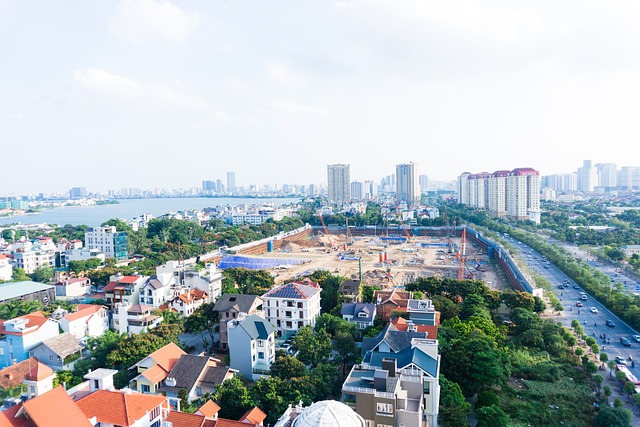Home Organization and Decluttering are not just about maintaining an uncluttered living space; they are transformative practices that significantly improve psychological well-being by simplifying one's environment. These practices involve a deep reflection on the value of material possessions and their emotional impact, leading to the release of emotional baggage and the creation of a space that fosters calm, clarity, and focus. The act of decluttering encourages mindfulness, allowing individuals to reassess their choices and prioritize what truly matters for their mental and emotional health. By organizing both physical spaces and mental clutter, individuals can achieve a more balanced, intentional life, where each item has purpose and the home environment supports overall well-being. Home Organization and Decluttering are thus integral for Emotional Freedom, offering a path to a harmonious and centered lifestyle that promotes mindfulness and self-care.
Embarking on a journey towards emotional freedom often begins with the simple act of decluttering. This transformative process extends beyond the physical realm, intertwining our living spaces with our mental well-being. In this comprehensive guide, we explore how home organization and decluttering not only streamline our environments but also pave the way for inner peace and tranquility. From assessing the emotional weight of our possessions to establishing intentional routines that foster clarity and release, each section delves into the practical and psychological benefits of a clutter-free life. Join us as we navigate through strategies for letting go, the importance of mindfulness during decluttering, and how to sustain this newfound serenity. Whether it’s organizing your home, digital space, or calendar, discover the profound impact these actions can have on achieving emotional freedom.
- Uncluttering Your Space, Uncluttering Your Mind: The Interconnection of Physical and Emotional Decluttering
- Assessing the Clutter: Identifying Emotional Attachments and Their Impact on Well-being
- The Art of Letting Go: Strategies for Emotional Detachment from Material Possessions
- Creating a Conducive Environment for Mental Peace: Tips for Home Organization
- The Psychological Benefits of a Decluttered Living Space
- Organizing with Intention: Setting Up Your Home to Support Emotional Freedom
Uncluttering Your Space, Uncluttering Your Mind: The Interconnection of Physical and Emotional Decluttering

Decluttering one’s living space can have a profound impact on emotional well-being, creating an environment that is conducive to peace and clarity. Home Organization and Decluttering are practices that extend beyond mere tidiness; they are acts of self-care that can lead to significant psychological benefits. By removing excess items from our physical surroundings, we inadvertently make room for new experiences and emotions to enter. This process often requires a mindful approach, as it involves making decisions about what holds value in our lives. It’s not just about the physical objects but also about the memories and emotions attached to them. As you sort through belongings, you confront past decisions, experiences, and perhaps even emotional baggage that has been stored away. This act of letting go can be liberating, as it allows individuals to detach from the past and embrace a future where they are free from the weight of unnecessary possessions and potentially overwhelming thoughts.
In parallel with physical decluttering, uncluttering the mind involves clearing mental space of excessive thoughts, worries, and negative self-talk. This mental decluttering complements physical decluttering, creating a harmonious balance between one’s internal and external environments. Home Organization and Decluttering principles can be applied to mental clutter by categorizing thoughts, assessing their importance, and deciding what to keep, discard, or file away. The practice of mindfulness and meditation can aid in this process, providing tools to observe thoughts without judgment and to let them pass without becoming entangled in their narrative. By maintaining both a decluttered home and an organized mind, individuals can enhance their emotional freedom, leading to a more centered and intentional life. This interconnection underscores the importance of a holistic approach to decluttering, where physical organization not only improves the living space but also contributes to the mental clarity and emotional peace that come with a decluttered mind.
Assessing the Clutter: Identifying Emotional Attachments and Their Impact on Well-being

Engaging in the process of home organization and decluttering is not merely a physical endeavor; it extends into the emotional realm where clutter often accumulates unseen. This intangible ‘clutter’ can manifest as emotional attachments to items, memories, or even habits that no longer serve our well-being. To assess this emotional clutter, one must take an inventory of possessions and reflect on the feelings they evoke. It’s a journey that requires honesty and self-awareness, as some items may hold significant sentimental value, while others might represent past regrets or unmet expectations. The impact of this emotional baggage can be profound, affecting mental clarity, stress levels, and overall life satisfaction. By recognizing these attachments, individuals can begin the process of letting go, making space for new experiences and growth. This critical step in home organization and decluttering not only facilitates a physically tidier environment but also paves the way for emotional freedom and a more tranquil state of mind. It’s an opportunity to reevaluate what truly matters and to prioritize well-being, which is essential for a balanced life.
The Art of Letting Go: Strategies for Emotional Detachment from Material Possessions

Decluttering one’s home can be a transformative process that extends far beyond the physical act of sorting through possessions. It is an art form known as emotional detachment, where individuals learn to let go of items that no longer serve their purpose or align with their current lifestyle. This practice of home organization and decluttering serves as a gateway to emotional freedom gained. By tackling the clutter, we confront the attachments that bind us to the past, whether it’s sentimentality, perceived utility, or fear of loss. Strategies such as categorizing items, assessing their value, and practicing mindfulness can help in this process. For instance, adopting a mindful approach to each object—considering not only its physical presence but also its emotional weight—can illuminate the reasons for holding onto it. This introspective practice often reveals that many material possessions are superfluous, allowing individuals to release them with a clearer sense of purpose and well-being. By embracing home organization and decluttering as a disciplined habit, one can cultivate a living space that is not only physically uncluttered but also mentally liberating, fostering an environment that supports growth, tranquility, and a sense of accomplishment.
Creating a Conducive Environment for Mental Peace: Tips for Home Organization

Decluttering your home can significantly impact your emotional well-being, contributing to a sense of mental peace and clarity. A cluttered space often reflects a cluttered mind, so taking deliberate steps to organize your living environment is essential for fostering tranquility. Begin by assessing each item in your home—ask yourself if it brings joy or serves a purpose. If not, consider donating or discarding it. This act of letting go can be liberating and symbolizes the shedding of emotional baggage.
Organize your belongings by categorizing them into groups such as keepsakes, everyday use, and seasonal items. Allocate specific areas for each category, ensuring that these items have a designated space. This method, often referred to as the KonMari method, helps maintain order and reduces the likelihood of future clutter. Furthermore, create habits that support an organized home, like putting things back in their place immediately after use. By doing so, you’re not only keeping your home tidy but also practicing mindfulness, which aids in maintaining emotional balance. Regularly scheduled decluttering sessions can become a ritual that supports ongoing mental peace and enhances the overall organization of your home.
The Psychological Benefits of a Decluttered Living Space

A decluttered living space can significantly contribute to one’s psychological well-being, offering a range of emotional and mental benefits that stem from the act of home organization. When physical items are reduced in number, the mind is afforded a similar reduction in overload, leading to a more peaceful and focused state. The visual clarity that comes with fewer objects competing for attention can enhance one’s ability to process thoughts and reduce feelings of anxiety or stress. Moreover, a tidy environment can foster a sense of control and predictability, which are crucial for emotional stability. By engaging in the home organization process, individuals often find themselves making mindful decisions about what truly adds value to their lives, which can extend beyond material possessions to encompass relationships and daily activities. This intentional curation of one’s surroundings not only simplifies daily life but also encourages a habit of mindfulness, where each item in the home is a deliberate choice rather than an accumulation of clutter. The act of decluttering thus becomes a form of self-care, promoting mental clarity and emotional freedom.
Organizing with Intention: Setting Up Your Home to Support Emotional Freedom

Emotional freedom is a state that resonates with many, and achieving it often begins within the confines of our own homes. Home Organization and Decluttering play pivotal roles in cultivating an environment that supports this freedom. To embark on this journey, one must organize with intention, ensuring that every item in your space serves a purpose and aligns with your current lifestyle. Begin by assessing each area of your home, considering the frequency and manner in which you use these spaces. By thoughtfully placing items that uplift your spirit and remove those that provoke negative emotions or clutter, you create a sanctuary for reflection and peace.
The process of Home Organization and Decluttering extends beyond mere tidiness; it’s about curating a living space that promotes mindfulness and emotional well-being. As you sort through your belongings, ask yourself if each keeps its true value to your life. Let go of items that no longer resonate with you, not out of obligation or sentimentality, but in recognition of their impact on your mental landscape. By intentionally setting up your home, you foster an environment where emotional freedom can flourish, allowing for a more harmonious and centered daily existence.
In wrapping up our exploration into the profound impact of decluttering on emotional freedom, it’s clear that a tidy home can pave the way for a tranquil mind. Through the process of organizing our physical spaces, we’ve discovered not only the practical benefits of home organization but also the deep psychological rewards that come with letting go of material possessions that no longer serve us. By assessing and releasing emotional attachments, we’ve learned strategies to detach and ultimately foster a more peaceful state of being. The interconnection between physical decluttering and emotional well-being is undeniable, with each item removed being a step toward greater mental clarity and freedom. Embracing the art of decluttering can lead to a life where intention reigns over impulse, allowing us to live in harmony with our true desires and values. In essence, the journey to emotional freedom is often initiated by the simple act of organizing our homes, which can become a reflection of the order we seek within ourselves. Thus, embracing decluttering as a practice can be a transformative step toward a more intentional and liberated life.
